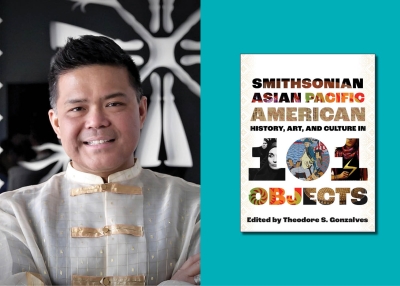The Quadrilateral Security Dialogue and Its Impact on Indo-Pacific Security Competition
VIEW EVENT DETAILSPresented in partnership with the University of Houston’s Center for International and Comparative Studies

Schedule
Wednesday, September 27, 2023
6:30 p.m. Drinks Reception
7 p.m. Program
7:45 p.m. Audience Q&A
The Quadrilateral Security Dialogue, or “Quad,” is a strategic dialogue among Australia, India, Japan, and the U.S. At present, the Quad dialogue aims to establish a free and open Indo-Pacific region and to serve as the aegis for military exercises, trade dialogues, and humanitarian efforts among the four countries.
Following its formation in 2007, the significance of the Quad diminished, with Australia's temporary departure in 2008 and no quadrilateral military exercises after 2009. However, in what many view as a response to an increasingly assertive China, formal discussions restarted in 2017, and since that time, leaders of the Quad have met regularly to discuss cooperation and possible expansion of the dialogue to include more countries in the Asia-Pacific region.
Join Asia Society Texas and the University of Houston’s Center for International and Comparative Studies (CICS) for a discussion with Gabriel Collins, Baker Botts Fellow in Energy and Environmental Regulatory Affairs at the Center for Energy Studies at Rice University’s Baker Institute for Public Policy; Dr. Songying Fang, Associate Professor of Political Science at Rice University; and Dr. Se-Hyoung Yi, Associate Professor and Director of Political Science at the University of Houston-Clear Lake, in conversation with Dr. Zachary Zwald, Assistant Professor and Director of the Center for International and Comparative Studies at the University of Houston, as they explore the significance of the Quadrilateral Security Dialogue, the likelihood it will develop into a formal alliance, and the role it may play in the Indo-Pacific security landscape.
Free admission is available for students. To receive free admission, please contact Rayen Torres, Business and Policy Programs Manager, at [email protected].
About the Speakers
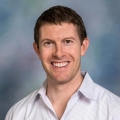
Gabriel Collins is the Baker Botts Fellow in Energy and Environmental Regulatory Affairs at the Center for Energy Studies at Rice University’s Baker Institute for Public Policy and a Senior Visiting Research Fellow at the Oxford Institute for Energy Studies. At Baker, he co-heads the program on Energy & Geopolitics in Eurasia. Gabe’s research focuses on energy, food, water, national security, and multiple points of intersection between these issues. The work is regularly published in high-impact outlets such as Foreign Affairs, Foreign Policy, The Naval War College Review, and the Baker Institute’s own publications.
Gabe received his B.A. from Princeton University and a J.D. from the University of Michigan Law School. He was a member of the U.S. Naval War College’s China Maritime Studies Institute team, and he is still teased by his family for joining a commodity hedge fund right before the 2008 market crash. Gabe is a Permian Basin native, reads Mandarin, Russian, and Spanish well enough to use them in his research, speaks each just well enough to get himself into trouble, and is licensed to practice law in Texas.
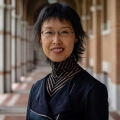
Dr. Songying Fang is an Associate Professor of Political Science at Rice University. She specializes in international relations. Her research areas include global governance, territorial disputes, military alliances, great power competition, and public opinion on foreign policy.
Dr. Fang has published extensively in these areas, and her recent articles (with co-authors) on Chinese public opinion toward the United States and Europe have attracted significant media attention (e.g., South China Morning Post, Bloomberg). She has received prestigious fellowships from Niehaus Center for Globalization and Governance at Princeton University and the Hoover Institution at Stanford University, and has served on the editorial board of leading political science and international relations journals such as American Political Science Review, International Organization, and Chinese Journal of International Politics.
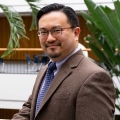
Dr. Se-Hyoung Yi is an Associate Professor and Director of Political Science at the University of Houston-Clear Lake. His research areas include Confucian peace theory, comparative political thought, contemporary democratic theories, and race and ethnic politics. Previously, he was a Research Associate at the Charles F. Kettering Foundation and an Assistant Professor at Trinity Christian College. Dr. Yi has recently received awards from the National Issues Forums Institute and the Peaceful Unification Advisory Council of Korea Houston Chapter for his contribution to deliberative pedagogy as well as promoting civic dialogues for democratic and peaceful unification of the Korean peninsula.
Dr. Yi has a Ph.D. from the University of Wisconsin-Madison and M.A.s from Korea University and the University of Wisconsin-Madison.
About the Moderator
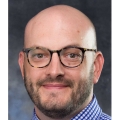
Dr. Zachary J. Zwald is on the faculty in the Department of Political Science at the University of Houston. He serves as director of the UH Center for International and Comparative Studies and director of UH’s degree minor in National Security Studies. Previously, Dr. Zwald was an Assistant Professor jointly appointed in the US Air War College and the USAF Center for Unconventional Weapons Studies, where he held a TS-SCI (CNWDI) clearance. In that capacity, he oversaw nuclear and deterrence curriculum at the Air University and directed a year-long group research seminar of MA students on nuclear weapons policy, technology and strategy.
Dr. Zwald has published his research on nuclear deterrence policy preference formation, the malleability of risk propensity during multi-domain deterrence crises, judgment and decision-making during military technology innovation, and trust dynamics in human-machine teaming on the battlefield. He has presented his research to various U.S. government audiences, including USSTRATCOM, White House Office of Science and Technology Policy, Lawrence Livermore National Laboratory, OSD Policy, J-5, Headquarters Air Force/A10, and the CIA. Zwald’s research has been funded by a grant from the US Department of Defense’s Project on Advanced Systems and Concepts for Countering WMD (PASCC), a Junior Faculty Fellowship at MIT’s Security Studies Program, and a Postdoctoral Fellowship from the Mershon Center at the Ohio State University. Dr. Zwald received his PhD in Political Science from UC Berkeley.
Asia Society hosts today's leading voices, providing commentary on events in news, society, and culture. Opinions expressed do not necessarily reflect Asia Society views.
Business and Policy programs at Asia Society Texas are presented by Bank of America, Muffet Blake, ExxonMobil, and United Airlines. Major support comes from Nancy C. Allen, Chinhui Juhn and Eddie Allen, The Brown Foundation, Inc., bp America, and Houston Endowment Inc. Generous funding provided by Anne and Albert Chao, ConocoPhillips, Mitsubishi Corporation (Americas), Regions Bank, and Stephanie and Frank Tsuru. Additional funding is provided by the Friends of Asia Society, a dedicated group of individuals and organizations committed to bringing the best in public programming.
Business & Policy Presenting Sponsors



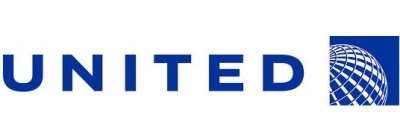
Japan Series Sponsor
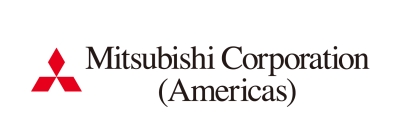
Presenting Partner
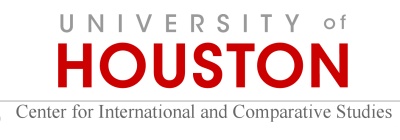
About Asia Society Texas
Asia Society Texas believes in the strength and beauty of diverse perspectives and people. As an educational institution, we advance cultural exchange by celebrating the vibrant diversity of Asia, inspiring empathy, and fostering a better understanding of our interconnected world. Spanning the fields of arts, business, culture, education, and policy, our programming is rooted in the educational and cultural development of our community — trusting in the power of art, dialogue, and ideas to combat bias and build a more inclusive society.
Event Details
1370 Southmore Blvd.
Houston, TX 77004


